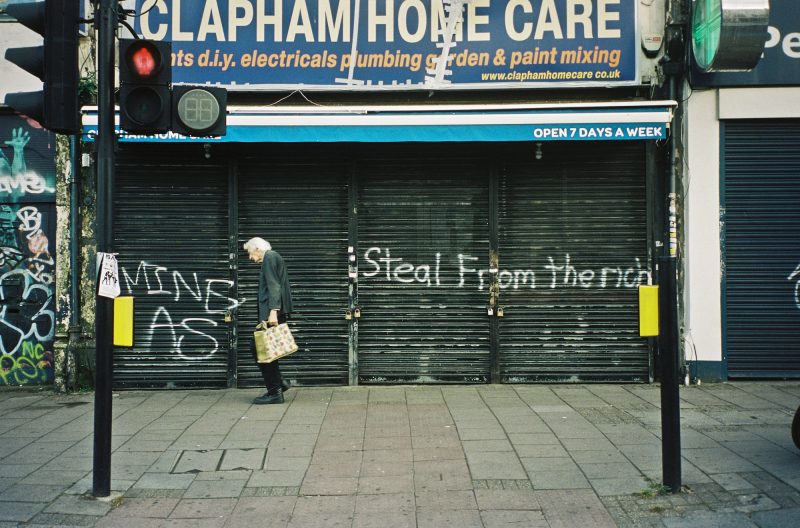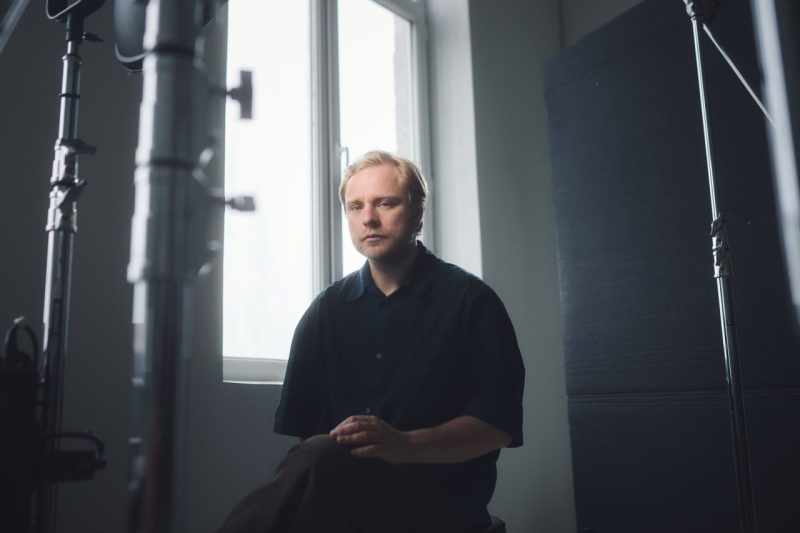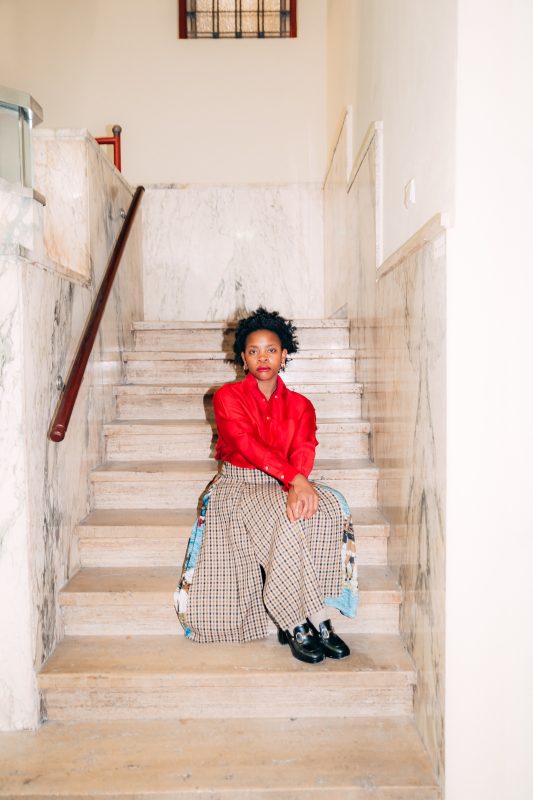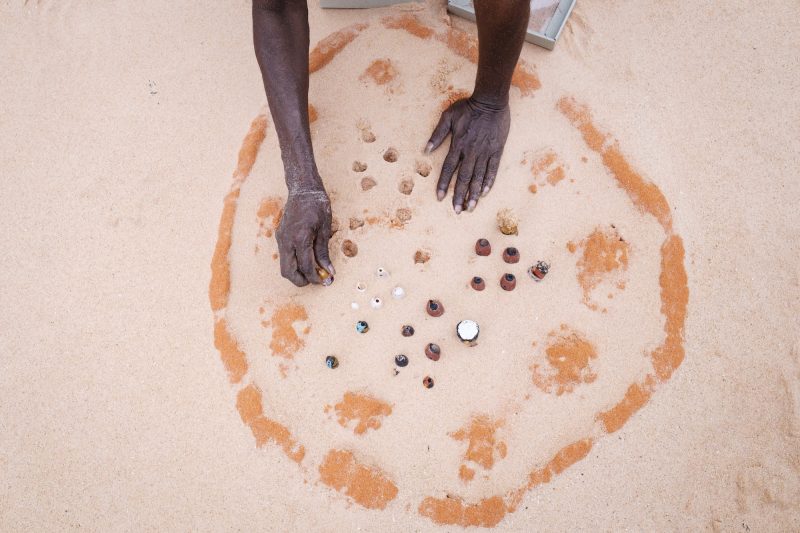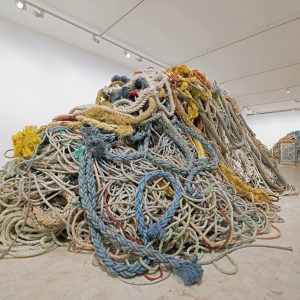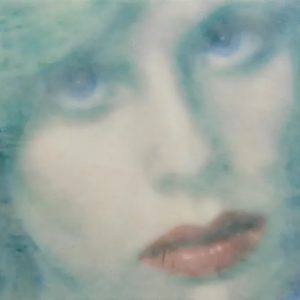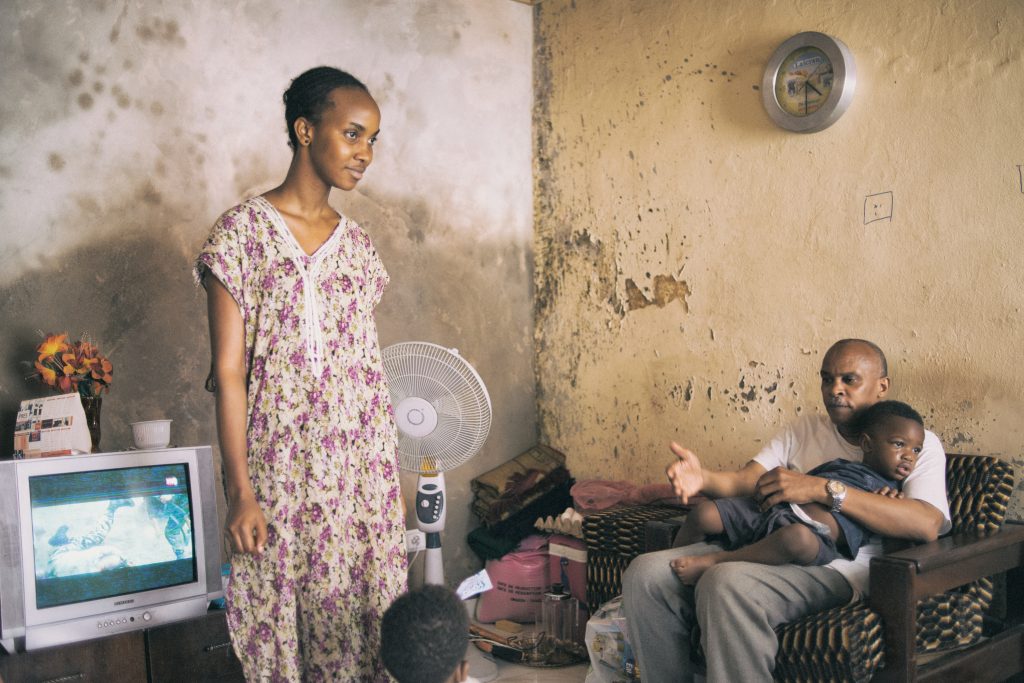
Sans titre from the series Nothing’s in Vain 2014-2016 ©Emmanuele Andrianjafy
Bamako Encounters, the historical and internationally renowned Biennale for Photography and Video Art on the African Continent, has announced the artists who will contribute to its 25th-anniversary edition.
The Biennale will run in Bamako, Mali from the 30th of November 2019 to the 31st of January 2020. Conceived by Artistic Director Bonaventure Soh Bejeng Ndikung and a curatorial team comprised of Aziza Harmel, Astrid Sokona Lepoultier and Kwasi Ohene-Ayeh, with artistic advisors Akinbode Akinbiyi, Seydou Camara and scenographer Cheick Diallo, this edition is an invitation to think about the artistic practice of photography as a stream of consciousness, as well as to consider photography beyond the tight corset of the photographic; the moment of a snapshot emanates from a flow of thoughts and associations reflecting the photographer’s inner voice, which is unavoidable and constantly in motion.
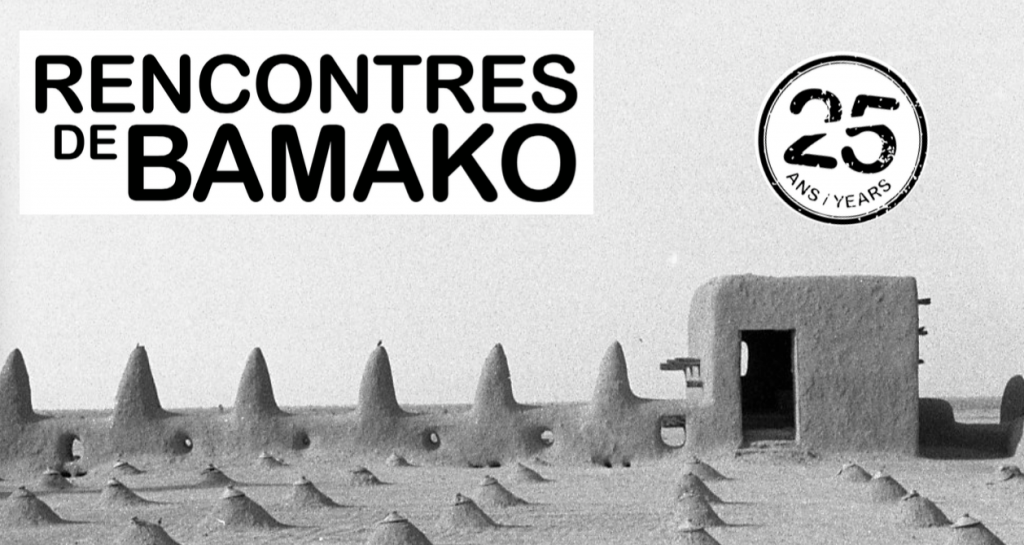
Bamako Encounters 25 Years © Alioune Ba
Titled Streams of Consciousness, after the eponymous 1977 record by Abdullah Ibrahim and Max Roach, the Biennale will employ multiple over standings of how such streams can be used as photographic tools. Tools that bridge the African continent with its various diasporas, in addition to conveying cultures and epistemologies. ‘Africa’ has, after all, long ceased to be a concept limited to the geographical space called Africa. Africa as a planetary concept relates to people of African origin, the I & I, that are spread over the world in Asia, Oceania, Europe, the Americas and the African continent.
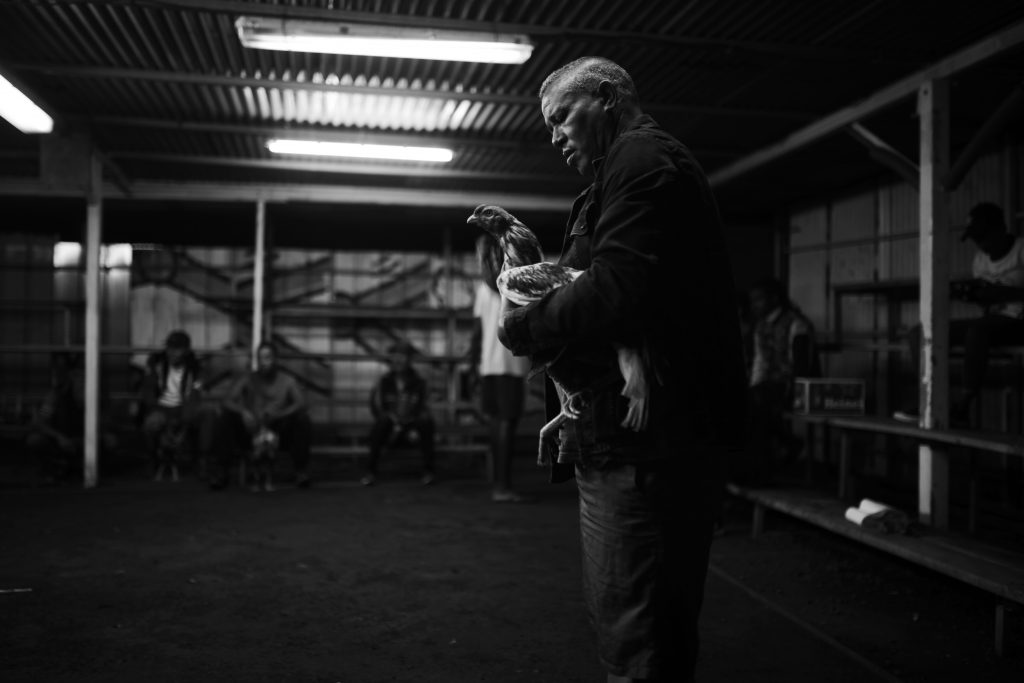
Long Road, 2018 © Andrew Tshabangu
The exhibition will apply the notion of streams of consciousness as a metaphor for the flux of ideas, peoples, cultures that flow across and with rivers like the Niger, Congo, Nile or Mississippi. This edition of the Biennale listens carefully to remoteness, and invisible matters, hitherto erased voices and images, and celebrates politics and poetics of (in)animate ecosystems. It expands on the role of collectives in African photographic practices, and the possibility of collectively telling our own stories through images, arguing for the fact that in society we are not individuals, but dividuals: divisible entities that together make up a larger collective. In an effort to go beyond the frame of photography as a visual experience, this Biennale will engage with the textuality, the tangibility, the performativity and above all the sonicity of photography. The sonic properties of photography are envisioned as streams of consciousness wherein the photographic and phonographic intersect. How can we understand the lyricism of the photographic in that space of cognitive flux? The stream in streams of consciousness is a spectrum that encompasses the conscious and unconscious and forms a space in which the notions of consciousness and unconsciousness collapse into each other.
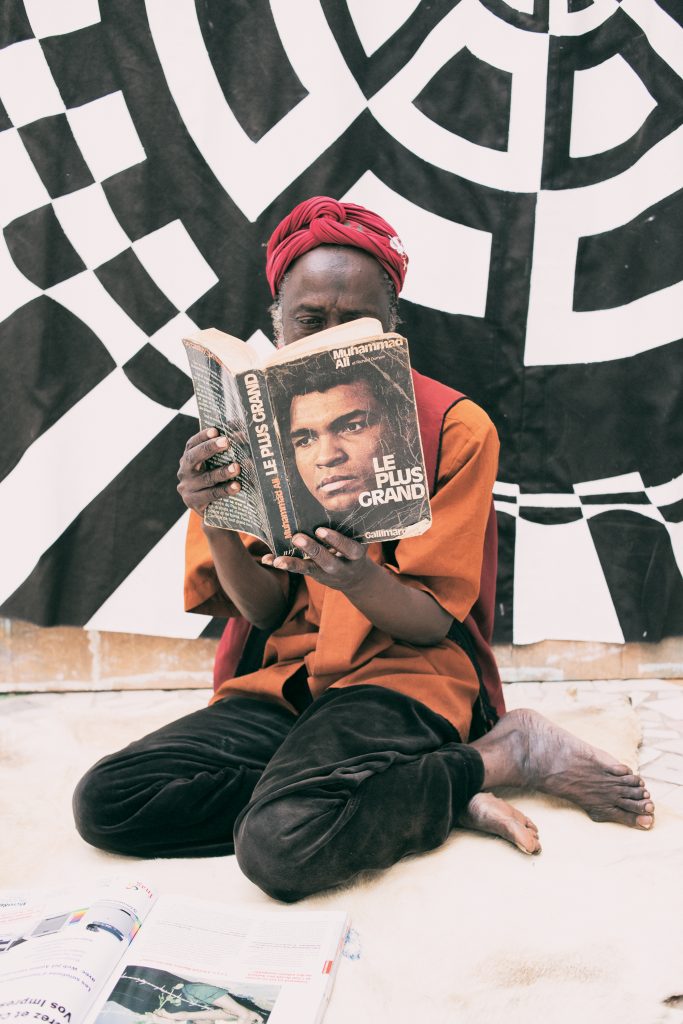
Sans titre (from the series Nothing’s in Vain, 2014-2016) 2016 © Emmanuele Andrianjafy
An exhibition told in four verses
Roughly eighty-five artists from all over the African continent and diasporas will showcase their contributions.
Four chapters have arisen from the artist selection, each of which will take the beholder on their own distinct stream of consciousness narrative. The chapters are named after verses taken from a poem featured in the prelude of The Dilemma of a Ghost, a play written by Ama Ata Aidoo.
The Sudden Scampering In The Undergrowth
On Presence of the Invisible, the Remote, and other Ghostly Matters
For The Mouth Must Not Tell Everything
On Politics and Poetics of Ecosystems
We Came From Left, We Came From Right
On Displacement, Errantry and Diasporas
The Twig Shall Not Pierce Our Eyes
On the Possibility of Hope and the Future as Promise
List of participating artists of Streams of Consciousness
Ibrahim Ahmed (Egypt/USA), Nirveda Alleck (Mauritius), Emmanuelle Andrianjafy (Madagascar), Roger Anis (Egypt), Yannick Anton (Canada), Afrane Akwasi Bediako (Ghana), Jean-Pierre Bekolo (Cameroon), Jodi Bieber (South Africa), Milena Scherezade Carranza Valcárcel (Peru), Cédrick-Isham (France), Nidhal Chamekh (Tunisia), Amsatou Diallo (Mali), Moustapha Diallo (Mali), Dickonet (Mali), Adji Fatou Amdy Dieye (Italy/Senegal), Fakhri El Ghezal (Tunisia), Badr El Hammami (Morocco), Yagazie Emezi (Nigeria), Theo Eshetu (Ethiopia/Italy/ The Netherlands/ United Kingdom), Fototala King Massassy (Mali), Abrie Fourie (South Africa), Rahima Gambo (Nigeria), Eric Gyamfi (Ghana), Yasmine Hajji (France), Halima Haruna (Nigeria), Fanyana Hlabangane (South Africa), Renée Holleman (South Africa), Adama Jalloh (United Kingdom/Sierra Leone), Maxime Jean-Baptiste (France), Amina Ayman Kadous (Egypt), Mansour Ciss Kanakassy (Senegal), Mouna Karray (Tunisia), Godelive Kabena Kasangati (DR Congo), Bouchra Khalili (France/Morocco), Nicène Kossentini (Tunisia), Kitso Lynn Lelliott (Botswana/South Africa), Keli Safia Maksud (Kenya/Tanzania), Harun Morrison & Helen Walker (United Kingdom), Santiago Mostyn (Sweden/Trinidad/Zimbabwe), Khalil Nemmaoui (Morocco), Yvon Ngassam (Cameroon), Antoine Ngolke-do’o (Cameroon), Christian Nyampeta (The Netherlands/Rwanda), Abraham Oghobase (Nigeria), Adeola Olagunju (Nigeria), Léonard Pongo (Belgium), Nader Mohamed Saadallah (Egypt), Amadou Diadié Samassékou (Mali), Mara Sanchez Renero (Mexico), Ketaki Sheth (India), Buhlebezwe Siwani (South Africa), Selasi Awusi Sosu (Ghana), Mohamed Thara (Morocco), Dustine Thierry (Curaçao/The Netherlands), Bouba Touré (France/Mali), Hamden Traoré (Mali), Andrew Tshabangu (South Africa), Guy Woueté (Cameroon)
Collectives
Association des Femmes Photographes du Mali (AFPM) (Mali), Collectif Orchestre vide (France), Collective 220 (Algeria), Iliso Labantu Photography Collective (South Africa), Invisible Borders (Trans-Africa), Kamoinge (USA/Pan-Africa), Kolektif 2 Dimansyon (K2D) (Haiti), MFON: Women Photographers of the African Diaspora (Pan-Africa), The Otholith Group (Ghana/India/United Kingdom)
Solid Rocks
Felicia Abban (Ghana), Akinbode Akinbiyi (Nigeria), Jihan El Tahri (Egypt), Armet Francis (Jamaica), Liz Johnson Artur (United Kingdom), Deborah Lewis (USA), Eustaquio Neves (Brazil)
Special Projects
Do you hear me calling? (video installation by Theaster Gates, USA), Musow Ka Touma Sera (curated by Fatima Bocoum, Mali), Dja Tigui: L’hote de Mon Ombre (curated by Nakhana Diakite Prats, France/Senegal), The Works of Tolu Odukoya 1945-2015 (curated by Uche James Iroha, Nigeria), Legends of the Casbah (curated by Riason Naidoo, South Africa), À l’Est de Bamako (curated by Françoise Huguier, France), Five Photographers: A tribute to David Goldblatt (curated by John Fleetwood, South Africa)
Public program, film program and complementary exhibitions
This anniversary edition of Rencontres de Bamako will feature a rich public program, consisting of artist talks, performances and discursive events. Fables of Time, the film program of the Biennale takes political and ideological histories into account and acknowledges the ambivalence of the moving image; i.e. to be able to function in service of poetry, conformism and politics. The Biennale will also be accompanied by an extensive reader, with contributions by Bernard Akoi-Jackson, Viola Allo, Omar Berrada, Kwame Dawes, Chantal Edie, Christine Eyene, Kangsen Feka Wakai, Denise Ferreira Da Silva, Thulile Gamedze, Nacira Guénif-Souilamas, Maï-Do Hamisultane-Lahlou, Salah Hassan, Tsitsi Jaji, Seloua Louste Boulbina, Vladimir Lucien, Bongani Madondo, Sada Malumfashi, Olivier Marbeouf, Renée Mboya, Athi Mongezeleli Joja, Sorana Munsya, Simon Njami, Nontobeko Ntombela, Olu Oguibe, Emeka Okereke, Zoe Samudzi, k?rî’k?chä seid’ou, Safiya Sinclair and Stanley Wolukau-Wanambwa.
Several thematic exhibitions will complete the Biennale’s program: special consideration is given to collective practices to address the possibility of creating communities that complement each other. A full overview of the complementary exhibitions will be announced later in the year.
Rencontres de Bamako / Bamako Encounters: Streams of Consciousness
30th November 2019 – 31st January 2020 Professional Days: 30th November – 3rd December
Various venues in Bamako, Mali www.rencontres-bamako.com
Curatorial Team
Dr. Bonaventure Soh Bejeng Ndikung is a curator, author and biotechnologist. He is the founder and artistic director of SAVVY Contemporary Berlin. He was curator-at-large for documenta 14 in Athens and Kassel and guest curator of the 2018 Dak’Art Biennale in Senegal. Together with the Miracle Workers Collective, he curated the Finland Pavilion at the Venice Biennale in 2019. He is currently a guest professor in curatorial studies and sound art at the Städelschule in Frankfurt and has been appointed as the artistic director of Sonsbeek 2020, a quadrennial contemporary art exhibition in Arnhem, the Netherlands.
Aziza Harmel is an independent curator based in Tunis, Tunisia. Aziza worked at documenta 14 and steirischer herbst ‘18. She is currently co-curating a research program on curatorial knowledge, Qayyem, which is roaming between Mass Alexandria (Alexandria), MMAG Foundation (Amman) and Atelier Kissaria (Tanger). Her work revolves around ghostly matters, regimes of visibility, secrecy and public secrecy.
Astrid Sokona Lepoultier is an independent curator based in Paris, France and Bamako, Mali. After a degree in Hospitality Management – Finance, Real Estate and Revenue Management, she completed a Master’s degree in Trade and Diffusion of Contemporary Art. In addition to having been in charge of a collection dedicated to modern and contemporary African art, she worked in different cultural events such as the Rencontres de Bamako in 2017 as assistant curator. She curated the 1st and 2nd editions of BICIM Amie des Arts (Groupe BNP Paribas) in Mali in 2018 and 2019.
Kwasi Ohene-Ayeh is an artist, curator and writer based in Kumasi, Ghana. He has co-curated ‘Silence Between the Lines: Anagrams of Emancipated Futures’ (2015) and ‘Orderly Disorderly’ (2017), both organized by blaxTARLINES KUMASI and was guest curator for the inaugural Lagos Biennial in 2017. Ohene-Ayeh is presently a Ph.D student at the Kwame Nkrumah University of Science and Technology (KNUST) in Ghana.
About Bamako Encounters
Founded in 1994, the Rencontres de Bamako is organized by the Ministry of Culture of Mali with the support of the Institut Français. Since its inception, the Biennale has been the first and main international event dedicated to African photography and video on the continent and remains an essential event for contemporary art. A platform for discoveries, exchanges and visibility, the Biennale is an essential place for the revelation of African photographers and the diaspora, a time of exchange with the Malian public and professionals around the world. This year’s edition of Rencontres de Bamako will further underline the importance of culture when it comes to nation-building and establishing Pan-African identities.
Lassana Igo Diarra, founder and Director of Galerie Medina (Mali) and Editions Balani’s was recently appointed the General Delegate of the Rencontres de Bamako. www.rencontres-bamako.com
